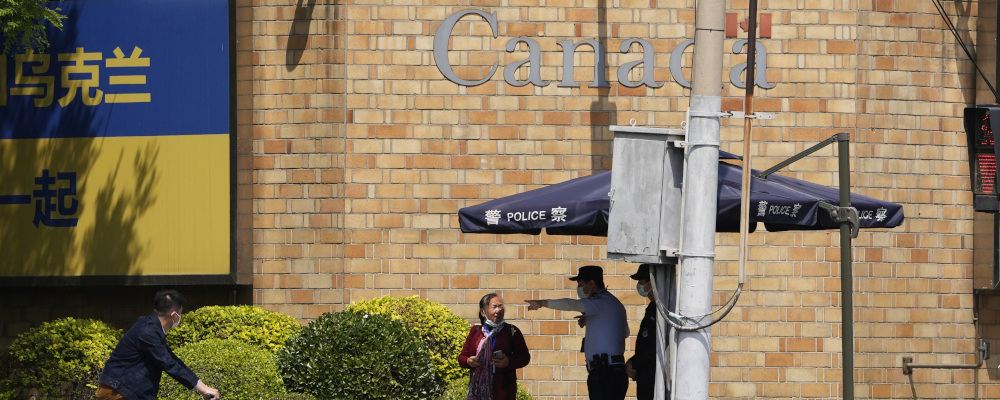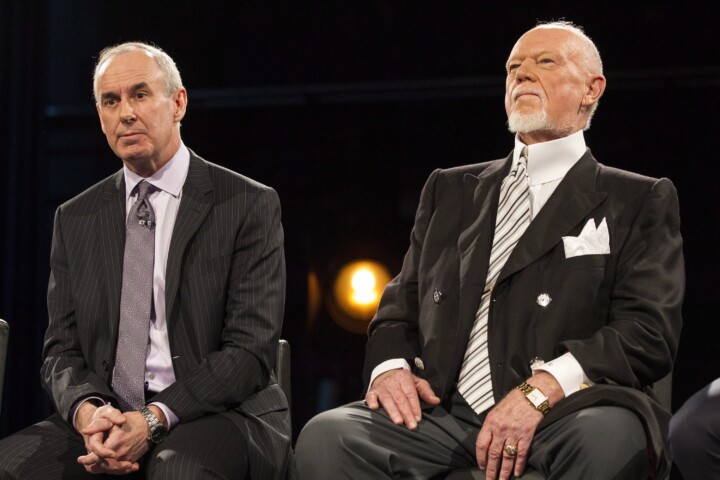The seven days between the Globe and Mail report that a Chinese diplomat in the Toronto consulate had targeted Conservative MP Michael Chong and his family and the Trudeau government’s decision to expel him is bound to have big consequences for Canadian policy and politics, our relationship with China, and broader perceptions of the country’s place in the world.
One certain consequence though is that it has undermined my end-of-year review of 2022 for The Hub. I was prepared to give the Trudeau government the benefit of the doubt that it had undergone something of a genuine change in how it conceptualized China’s increasingly divergent interests and values and the implications for Canadian public policy. I was wrong.
In late December, I argued that the Trudeau government’s Indo-Pacific Strategy, which articulated a more hawkish approach to Canada’s relationship with China, was the most important policy development of the year because it ended a fifty-year strategy of engagement with a new policymaking paradigm rooted in a clear-eyed view about China’s geopolitical ambitions and national security threats.
In particular, I wrote:
The Trudeau government’s commitment to a new, more hawkish policy vis-à-vis China will be tested over time. But its Indo-Pacific Strategy should be viewed, at least in theory, as a major shift in strategy from engagement to a new, more circumscribed, and realist position.
It thinks and talks about Canada’s relationship with China in a way that we haven’t seen in decades. At its core, [the Indo-Pacific Strategy] is an expression of Ottawa’s growing recognition that China is fundamentally a geopolitical and technology rival and possibly an outright enemy.
My main point was that while the Trudeau government had been slower than most to recognize that Canada’s strategy towards China needed to change, the Indo-Pacific Strategy seemed to represent a “significant policy shift” with far-reaching implications. It exhibited a different mindset and reflected firmer language—including calling China an “increasingly disruptive global power…[that] engages in coercive behaviour”—than we had seen since Prime Minister Trudeau’s father had set in motion Canada’s strategy of engagement more than five decades earlier.
The outstanding question of course was: would his government stay committed to its self-characterized “evolving approach” to China when tested?
The first test has now come in the form of the Chinese interference story in general and compelling evidence that Zhao Wei, a Chinese official in the Toronto consulate, targeted MP Chong and his family in particular.
The Trudeau government has abjectly failed the test. Its delayed response has exposed a huge gap between the Indo-Pacific Strategy’s hawkish insights and the government’s own dovish disposition when it comes to Canada’s relationship with China.
It now seems apparent that the strategy wasn’t a major policy development at all but rather a rhetorical smokescreen to obscure the Trudeau government’s ongoing unwillingness to actually change course on China.
The best (or worst) example was the Trudeau government’s open equivocation last week on whether to expel the so-called “diplomat” who targeted MP Chong and his family. Foreign Affairs Minister Melanie Joly told Chong and his parliamentary colleagues that the government was “assessing the consequences” that might result from diplomatic expulsion, including to the country’s economic interests. Prime Minister Trudeau similarly explained over the weekend that his government needed to make such a decision “very, very carefully” to account for such consequences.

The explicit implication was that Ottawa must choose between sanctioning active threats to Canadian democracy from foreign governments or supporting the country’s trade and investment flows. It’s rather extraordinary to have Canada’s foreign affairs minister openly speculate in Parliament about how much Chinese interference we might have to live with in exchange for cheap manufactured goods. There are various ways to describe such a statement: “realistic” and “clear-eyed” aren’t the first words that come to mind.
The consequences of these developments won’t just embolden China and other hostile actors as Chong has warned. They’ll also renew doubts that the Trudeau government is serious about the evolving geopolitical context and in turn further isolate Canada from its allies. It’s not an accident that we’ve been excluded to date from the 14-country Indo-Pacific Economic Framework or the AUKUS defence agreement between Australia, the United Kingdom, and the United States.
The government’s slow response to the Chinese interference scandal is unlikely to bolster our petitions for inclusion in these initiatives or any others aimed to counter China’s growing aggression. Allied governments are bound to continue to rightly view Canadian policy as weak and confused. Actions ultimately speak louder than words.
Which brings me to my mea culpa. In hindsight, I overestimated the Trudeau government’s words. They were back up by enough early policy steps, including new guidelines for research partnerships with Chinese scholars and universities and the mandated divestment by Chinese companies of certain Canadian mining assets, that it was possible to misjudge them in the moment as more substantial than they’ve proven to be.
But this recent episode has demonstrated that the Trudeau government hasn’t really changed its views about China much at all. This is still the same government that signed a COVID-19 vaccine deal in May 2020 with Beijing even though the two Michaels remained unlawfully detained and there was growing evidence that Chinese lies and obfuscation had contributed to the global pandemic. The prime minister and his Cabinet’s predisposition to China seems impervious to facts—or Canada’s interests, for that matter.
I have learned my lesson. I suspect that the Chinese have too. We’ll doubtless see some sort of reaction to Zhao’s expulsion. It might even be significant. But the Trudeau government’s evident apprehension to act is itself a win for China’s so-called “wolf warrior diplomacy.” It has signaled that Canadian policymaking has internalized the economic and geopolitical asymmetries between the two countries. Joly’s bizarre parliamentary testimony conceded as much.
What Canada needs is a government that can translate the words of the Indo-Pacific Strategy into policymaking action. The evidence of the past seven days is that we’ll need a new government to do that.
Recommended for You

Falice Chin: A tale of two (Poilievre) ridings

‘We’re winning the battle of ideas’: Conservative MP Aaron Gunn on young men moving right, the fall of ‘wokeness,’ and the unraveling of Canadian identity

The Notebook by Theo Argitis: Mark Carney’s first major tests

The Weekly Wrap: Trudeau left Canada in terrible fiscal shape—and now Carney’s on clean-up duty




